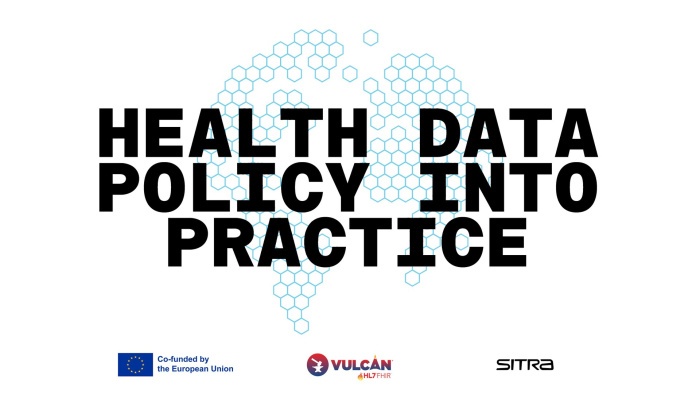Register Days 2024: Opportunities and Challenges of Current Legislative Processes for Registers
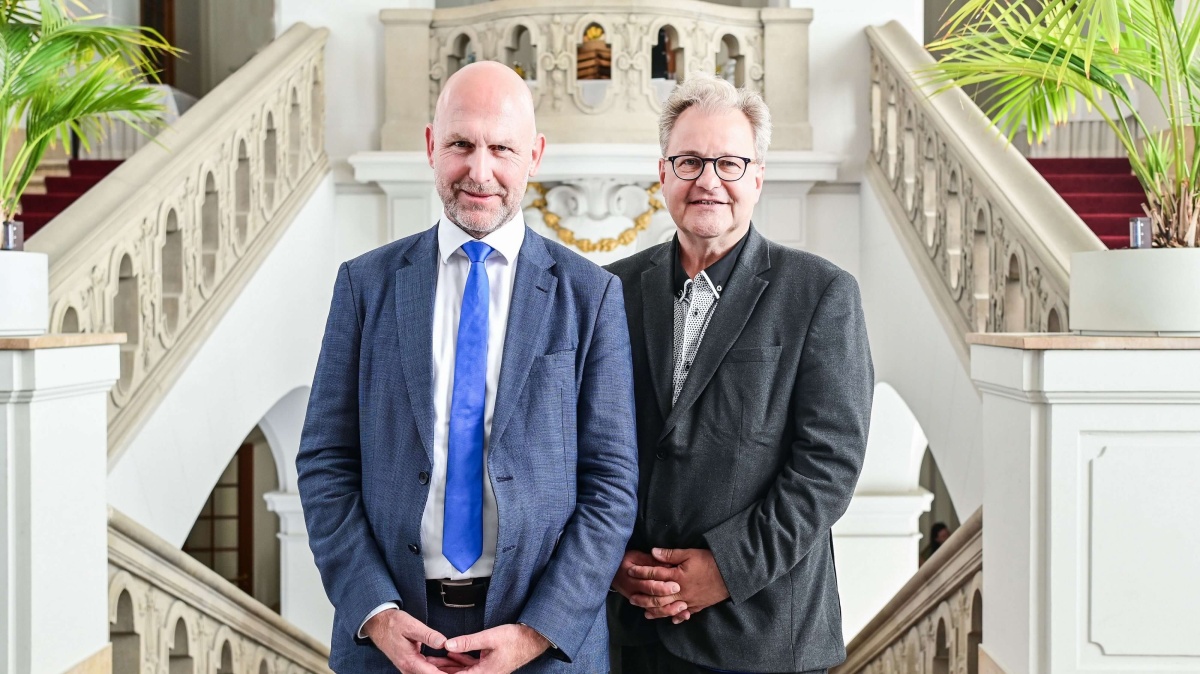
Ministerial Director Markus Algermissen from the Federal Ministry of Health and the TMF’s Managing Director Sebastian C. Semler at the Register Days 2024. © TMF
The Register Days 2024 will focus on the opportunities and challenges of current legislative processes for medical registers. Around 200 experts gathered at the congress from May 16-17, 2024. The central topics of discussion were the impacts of the Register Act, the Health Data Usage Act, and the European Health Data Space.
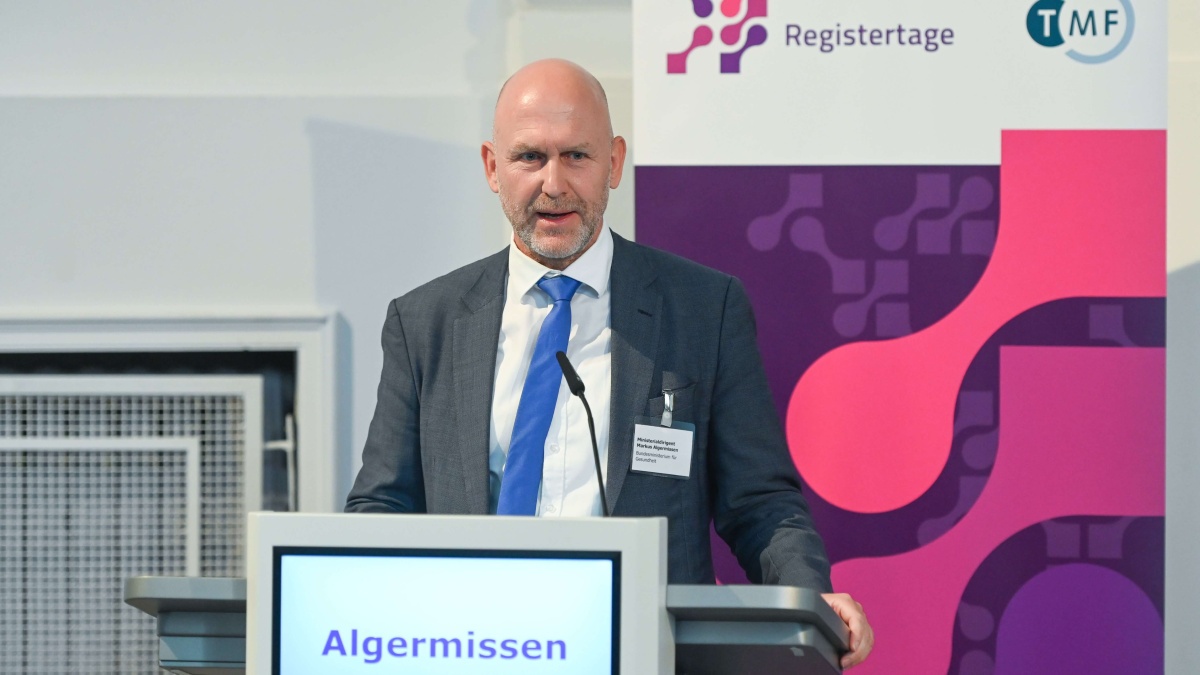
Director-General Markus Algermissen from the Federal Ministry of Health. © TMF
Keynote speaker Director-General Markus Algermissen from the Federal Ministry of Health (BMG) opened the congress by explaining the current status of the planned Register Act, which "represents an important component of the federal government's digitalization strategy." In the future, a connected health data ecosystem is expected to emerge through collaboration with other laws. Algermissen explained that the law aims to increase transparency regarding registers and their quality, promote standardization, and foster networking among them, thereby contributing to better use of register data in Germany. However, the timeline for the draft bill is still uncertain. The Register Act does not address registers regulated by specific laws, but it will allow these registers to undergo a qualification process to qualify for simplified data processing in the future.
Algermissen emphasized:
We want to create nationwide legal foundations for the collection and processing of data in registers with the Register Act.
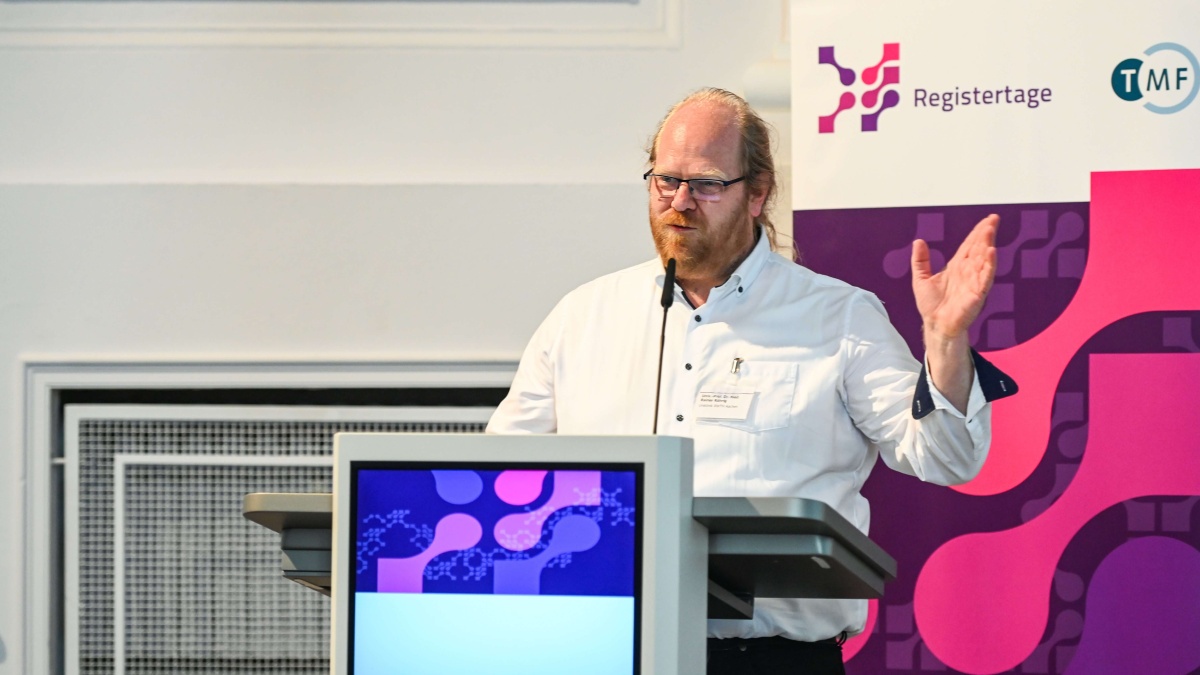
Chairman of the TMF Board Prof Dr Rainer Röhrig. © TMF
Registers as Research Platforms
"With the Register Act, we are simultaneously establishing the foundation for a new understanding of registers: Through planned data processing with opt-out solutions and the facilitation of linking register data with other data sources, registers can be understood as research platforms, enabling register-based intervention studies and enhancing the performance monitoring and safety of decision-supporting systems, as well as other medical products and medications," explains Prof. Dr. Rainer Röhrig, Chairman of the TMF Board. This is only possible with a high degree of transparency. To this end, a Central Office for Medical Registers (ZMR) will be established, which will provide information and support registers, thereby significantly increasing the utilization of registers and the associated benefits for research and healthcare.
Health Data Usage Act Unlocks Data from Registers
The impact of the Health Data Usage Act (GDNG) on registers was discussed by Sebastian C. Semler, Managing Director of the TMF, and Prof. Dr. Dr. Christian Dierks, Managing Director at Dierks+Company, from scientific, organizational, and legal perspectives. "The GDNG, which came into effect at the end of 2023, marks a paradigm shift in the legal requirements. It enables better data usage while streamlining data protection," said Semler. For registers, certain provisions of the GDNG are useful, but an additional register law is needed, the experts agree. "The GDNG provides a solid foundation for registers, but it needs to be further developed for registers," said Dierks. This includes the linkage option for all registers with a seamless solution and the architecture for a "research pseudonym," which enables connectivity to the European Health Data Space.
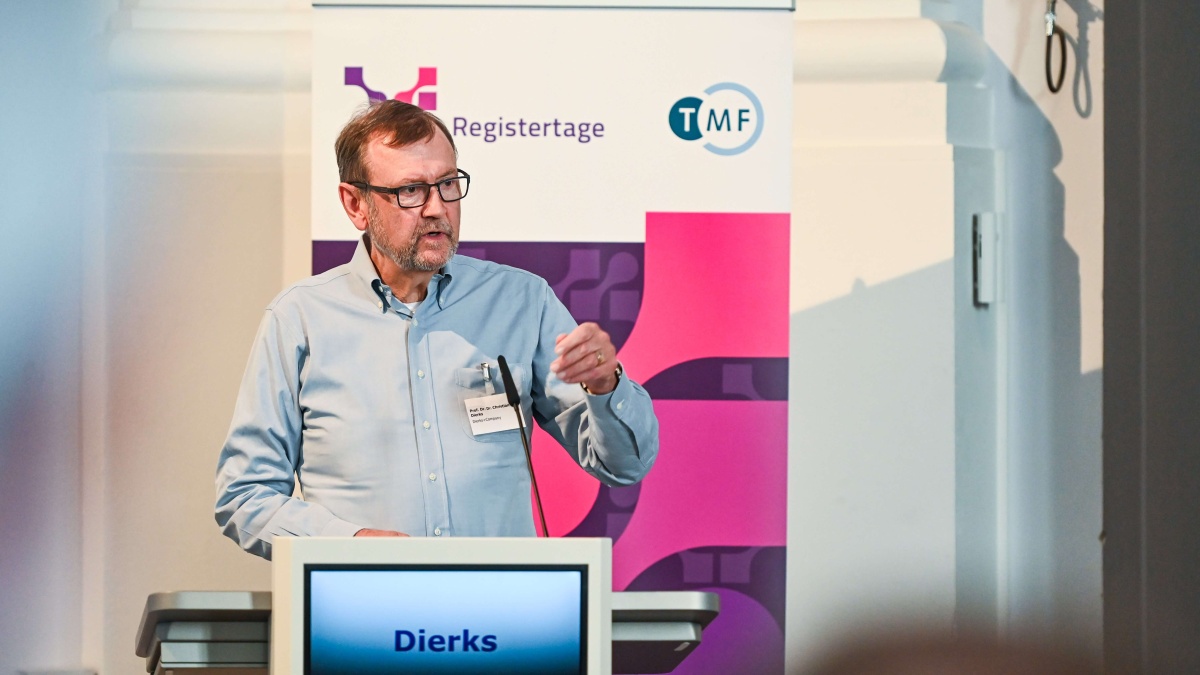
Prof Dr Dr Christian Dierks, Managing Director at Dierks+Company. © TMF
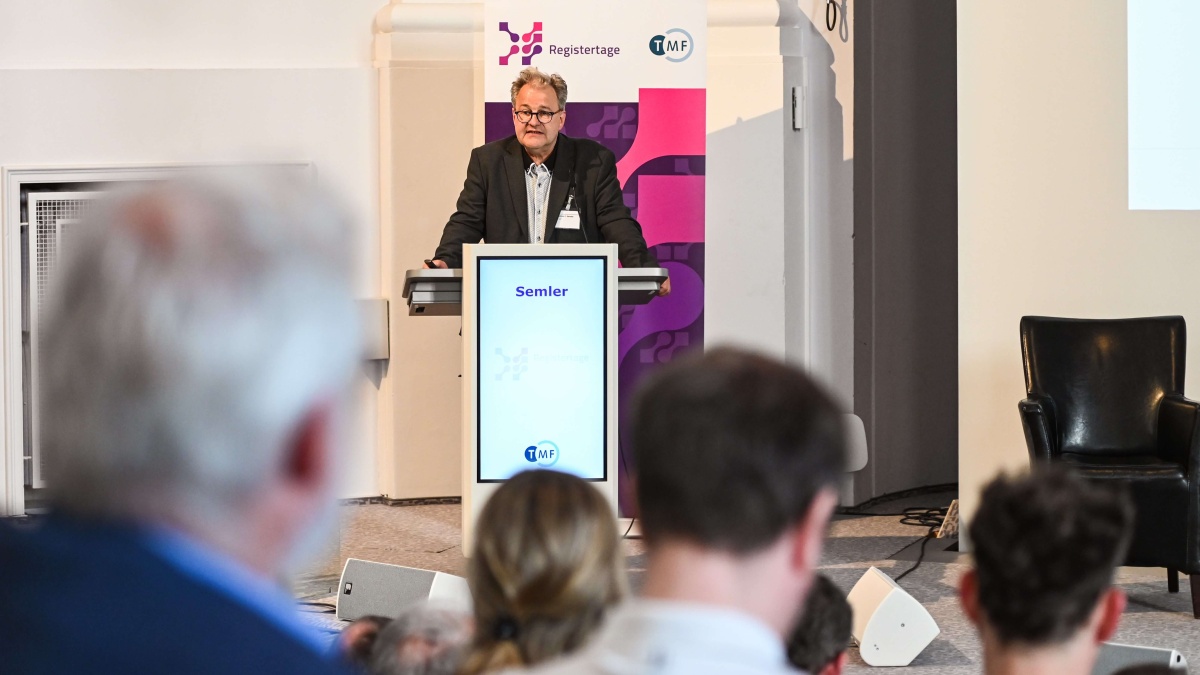
Sebastian C. Semler, Managing Director of the TMF. © TMF

During the coffee breaks, participants had the opportunity for personal exchanges. © TMF
European Health Data Space Opens New Opportunities for Registry-Based Research
Representatives from politics and science discussed the opportunities that the European Health Data Space (EHDS), which was approved by the European Parliament in April 2024, opens up for registry-based research in a panel. The secondary EHDS aims to unlock the research potential of health data in anonymized or pseudonymized form. Data such as health records, clinical trials, information from public health registries, biobanks, genetic data, or wellness data could be processed for public interest purposes in secondary data use. These data could, for example, be used to find treatments for rare diseases where small datasets and fragmentation currently hinder progress in treatment.
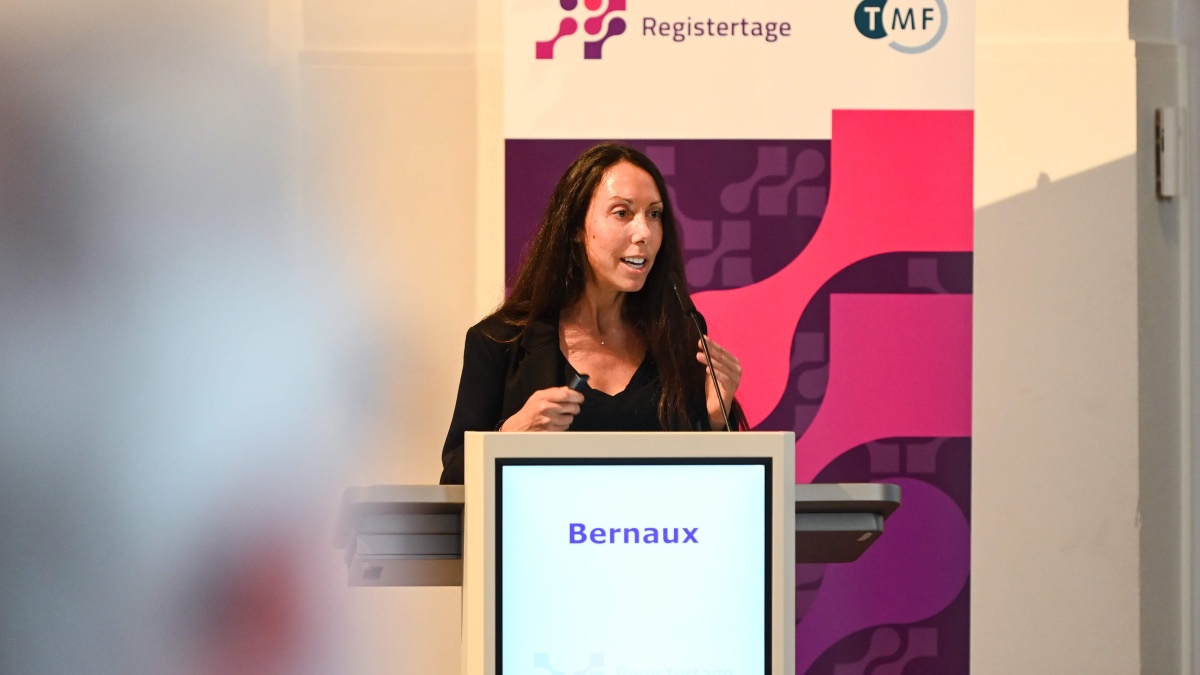
Dr Mélodie Bernaux from the European Commission. © TMF
Especially the linkage of registry data with data from electronic health records could open up new possibilities for research questions. Additionally, the broader use of one's own data within the European context can lead to improved visibility and, at the same time, strengthen the financial base for registries, emphasized Dr. Mélodie Bernaux from the European Commission at the Register Days. A significant challenge is certainly the provision of data for the EHDS, as many existing registries lack sufficiently standardized metadata descriptions. Overall, harmonization and interoperability are major challenges for the EHDS. For registries, it is essential that national efforts to standardize are aligned with the European ones, as agreed upon by the experts.
About the Register Days
The Register Days provide a platform for the exchange and discussion of current topics and challenges in register research. They have established themselves as an important meeting point for register operators and researchers, as well as for politics and industry. The event stimulates ideas for future register research and defines upcoming challenges for patient-related registers, with a focus on Europe.
Press Contact
Wiebke Lesch
Tel.: +49 30 2200 24731
Mobile: +49 177 2663257
Email: presse@tmf-ev.de
X: @tmf_eV
Further Information
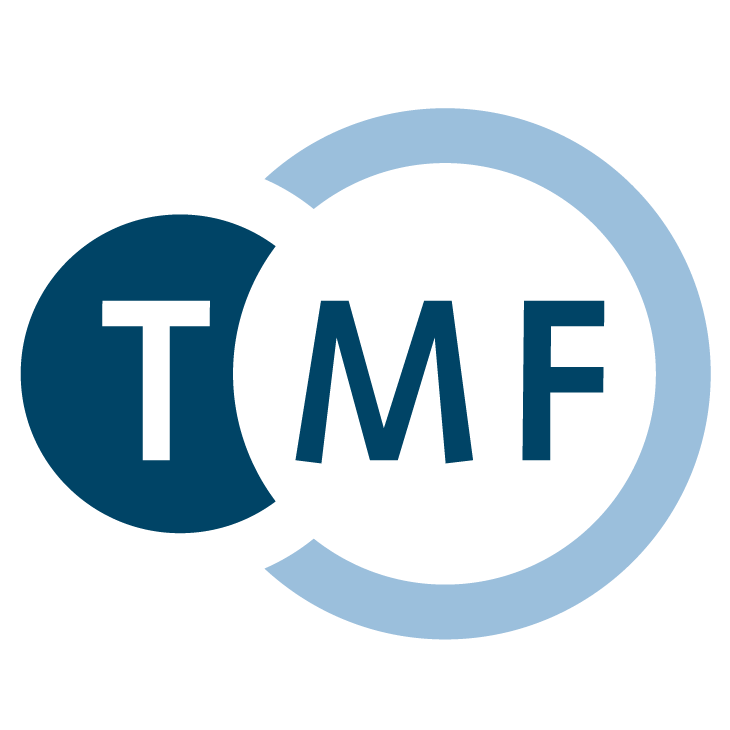
Über die TMF e.V.
Die TMF – Technologie- und Methodenplattform für die vernetzte medizinische Forschung e.V. steht für Forschung, Vernetzung und Digitalisierung in der Medizin. Sie ist die Dachorganisation der medizinischen Verbundforschung in Deutschland, im Rahmen derer Spitzenforscherinnen und -forscher Wissen austauschen, gemeinsam Ideen und Konzepte entwickeln und so die Zukunft der medizinischen Forschung im digitalen Zeitalter gestalten.

